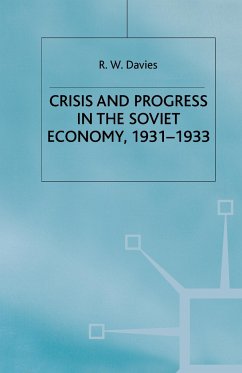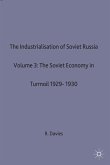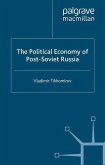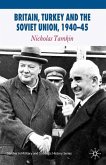The profound economic crisis of 1931-33 undermined the process of industrialisation and the stability of the regime. In spite of feverish efforts to achieve the over ambitious first five-year plan, the great industrial projects lagged far behind schedule. These were years of inflation, economic disorder and of terrible famine in 1933. In response to the crisis, policies and systems changed significantly. Greater realism prevailed: more moderate plans, reduced investment, strict monetary controls, and more emphasis on economic incentives and the role of the market. The reforms failed to prevent the terrible famine of 1933, in which millions of peasants died. But the last months of 1933 saw the first signs of an industrial boom, the outcome of the huge investments of previous years. Using the previously secret archives of the Politburo and the Council of People's Commissars, the author shows how during these formative years the economic system acquired the shape which it retaineduntil the collapse of the Soviet Union in 1991.
Reviews of volumes:
'The Soviet Economy in Turmoil will be read avidly by all specialists on the Soviet economy; it should also be consulted by anyone with an interest in the history of the 20th century.' - Alistair McAuley, Economic Journal
'Future generations of university students may well follow courses on comparative Russian/Soviet perestroika studies from Peter the Great to Gorbachev. If so, they will find in The Soviet Economy in Turmoil an essential text.' - David Dyker, Slavonic and East European Review
'The Soviet Economy in Turmoil will be read avidly by all specialists on the Soviet economy; it should also be consulted by anyone with an interest in the history of the 20th century.' - Alistair McAuley, Economic Journal
'Future generations of university students may well follow courses on comparative Russian/Soviet perestroika studies from Peter the Great to Gorbachev. If so, they will find in The Soviet Economy in Turmoil an essential text.' - David Dyker, Slavonic and East European Review








